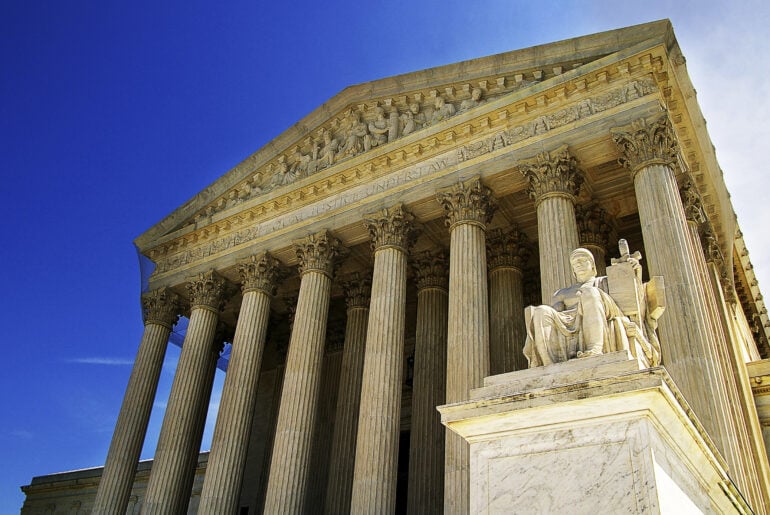On March 18, 2024, the United States Securities and Exchange Commission (the “SEC“) announced that it settled charges against two investment advisers for making false and misleading statements about their purported use of artificial intelligence (AI). This SEC enforcement action marks the latest efforts by securities regulators to combat the adverse effects of “AI washing” and confirms that AI, and particularly “AI washing”, is at the forefront of securities regulators’ minds.
What is “AI washing”?
“AI washing” occurs when a company misleads investors about its AI capabilities and its use of AI. The term “AI washing” is derived from “greenwashing” where a company makes false or inflated statements about the environmental impact of the company’s products or policies.
The SEC Actions
The SEC brought charges against two investment advisers, Delphia (USA) Inc. (“Delphia“) and Global Predictions Inc. (“Global Predictions“). The SEC alleged that Delphia and Global Predictions made false and misleading statements about their claimed use of AI.
The SEC alleged that, from 2019 to 2023, Toronto-based Delphia made false and misleading statements in SEC filings, in a press release, and on its website about its purported use of AI and machine learning. Delphia claimed to use AI to analyze its client data (e.g., their retail clients’ spending and social media data) to inform its investment advice. According to the SEC’s order, no such data was being used by Delphia for its investment process. Despite taking some corrective action following an SEC examination, Delphia continued to make misleading statements concerning its AI capabilities. According to the SEC, the misleading statements were material because Delphia represented these AI capabilities to current and prospective clients as a key differentiating characteristic from other advisers. The SEC’s order also states that Delphia failed to adopt and implement policies and procedures that were reasonably designed to prevent such violations.
Similarly, the SEC alleged that in 2023 San Francisco-based Global Predictions made false and misleading claims on its website and social media about its purported use of AI. Among other things, Global Predictions claimed to be the “first regulated AI financial adviser” and that its technology provided “[e]xpert AI-driven forecasts.” According to the SEC’s order, these statements were false and misleading. The SEC also took issue with other conduct of Global Predictions, including its failure to disclose material conflicts and its inability to substantiate performance claims.
The SEC alleged that Delphia and Global Predictions violated the antifraud provisions under section 206(2) of the Investment Advisers Act of 1940 (the “Advisers Act“), which only requires a finding of negligence. The SEC further alleged that Delphia and Global Predictions violated the marketing and compliance rules under section 206(4) of the Advisers Act.
While neither company admitted nor denied the SEC’s findings, Delphia agreed to pay a civil penalty of $225,000, and Global Predictions agreed to pay a civil penalty of $175,000, in addition to agreeing to censures and cease and desist orders. On the same day that the settled charges were announced, the SEC also issued videos by SEC Chair Gary Gensler and SEC Enforcement Director Gurbir Grewal on AI washing.
Increasing Regulatory Scrutiny
“AI washing” has received increased regulatory attention in the United States and Canada in recent months. For example:
- In February 2023, the Federal Trade Commission released a business blog, warning advertisers against making baseless claims that their product is AI-enabled.
- In December 2023 and February 2024, during remarks at The Messenger AI Summit and Yale Law School, SEC Chair Gary Gensler warned public companies against “AI washing,” stating that “one shouldn’t greenwash, and one shouldn’t AI wash” and that “AI washing, whether it’s by companies raising money or financial intermediaries, such as investment advisers and broker-dealers, may violate the securities laws.”
- In January 2024, the SEC’s Office of Investor Education and Advocacy, the North American Securities Administrators Association (NASAA) and the Financial Industry Regulatory Authority (FINRA) jointly issued an Investor Alert about AI and investment fraud. At the same time, the Commodity Futures Trading Commission’s Office of Customer Education and Outreach issued a customer advisory raising public awareness about AI scams that promise unreasonably high or guaranteed investment returns.
- In February , Ontario’s Securities Commission announced that its whistleblower program is seeking more tips about novel and emerging issues in securities regulation, including the “misuse of both algorithms and artificial intelligence.”
Key Takeaways
- The two settled enforcement actions demonstrate that the SEC and other regulators will investigate companies’ purported use of AI. The Director of the SEC’s Division of Enforcement, Gurbir S. Grewal, confirmed at a conference that the enforcement actions against Delphia and Global Predictions were only the start of the regulator’s action against misuse of AI, including allegations of AI washing.
- Regulators will monitor AI-related disclosures by public companies, investment advisers, fund managers, broker-dealers, asset managers, financial firms and other registered entities. Regulators will seek to enforce against those making false or misleading statements about their AI use or capabilities.
- Public companies, investment advisers, and other registered entities should be alert to this increased scrutiny and those tasked with reviewing disclosures should have access to expertise on the specific AI technology that the business provides so that they can adequately review the accuracy of any statements (whether in disclosures, press releases, or on social media) about their AI capabilities and use.



